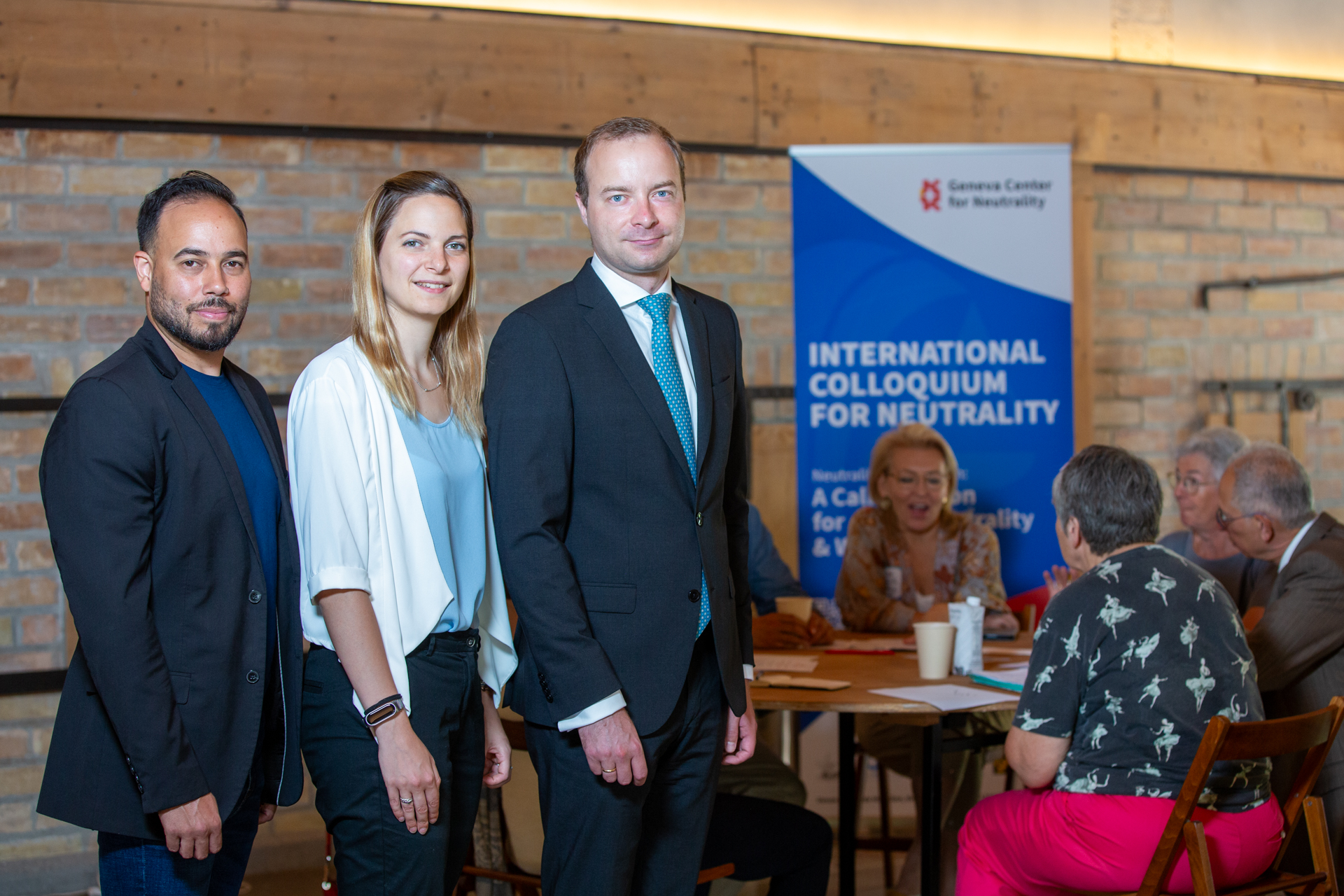
A global call for active neutrality has been launched by several stakeholders in Geneva at a time when major powers are hardening their stance. The city is competing with Vienna to host an international congress on the issue in 2026.
(Keystone-ATS) A public declaration and action plan were endorsed at the end of a two-day meeting that brought together 90 experts in diplomacy, international law and digital technology from 27 countries in Troinex (GE) and online on Friday. The goal is to launch an International Neutrality Network by the end of 2026, which will monitor the practices of various stakeholders.
A UN Declaration on Active Neutrality in the Digital Ecosystem and a label are desirable by 2030. A binding international agreement on neutrality in the digital age should follow in the long term.
Confrontations between major powers are causing growing tensions. Warning of “urgency,” the public statement emphasizes that neutrality does not mean “indifference.” It must promote conflict prevention and resolution, as well as disarmament and a shift from military spending to social and environmental investments. It must also avoid the militarization of artificial intelligence (AI). The request comes as NATO countries decide to increase their military funding to 5% of their gross domestic product (GDP).
After Bogotá
Faced with this situation, “we believe that Geneva and neutral spaces in general have an important role to play in promoting dialogue, the search for truth and the protection of common interests,” said Nicolas Ramseier, president of the Geneva Center for Neutrality, in an interview with Keystone-ATS.
We must question “our active Swiss neutrality and, more broadly, the role that other neutral states can play,” he added. He stressed that “the more fragmentation and mistrust grow, the greater the need for neutral, transparent and secure zones, both physical and digital.”
But it is becoming increasingly difficult to achieve recognition of a “neutral position,” admits Mr. Ramseier. His center was created precisely in this period of “criticism, misunderstanding and rethinking,” especially with regard to Switzerland. “We must rethink neutrality,” “as a proactive and structured position,” and adapt it to the technological challenges of the 21st century, the president believes.
After Bogotá last year, the International Congress on Neutrality could take place in Geneva in June 2026. Hundreds of leaders, academics and members of civil society are expected to attend.
